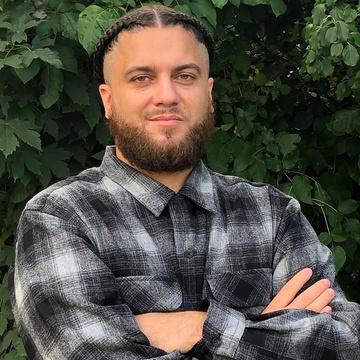
2 minute read
In the Classroom: Ethnic Studies at New Mission (pg
In the Classroom: New Mission welcomes Ethnic Studies
Instructors: Maribel Rosendo-Servin and Jeremy Furlow-Aponte
Advertisement

Ms. Rosendo-Servin moved to Boston in January from California. Prior to this she taught Ethnic Studies in California, where she attended college and became interested in the subject. Through her undergraduate experience, she learned from her professors how to connect what she was learning to making transformation in her community. This empowered her to unite with her peers around a cause.
This work is very hard to do on one’s own, Ms. Rosendo-Servin shared. For her, finding a community when she moved to Boston was very important to her. The collaboration that comes from community is something that Rosendo-Servin believes the students will greatly benefit from.

Mr. Furlow-Aponte’s family moved to Southwest Arizona when he was very young. He grew up going to school in Arizona Public Schools, and became aware of Ethnic Studies at the time when Tucson Unified School District banned the program from being taught. He left Arizona in 2011 with the intention of finding a way to be a part of the Ethnic Studies community. He moved to Boston to support the Ethnic Studies in the Boston Public Schools. Since then, he has built friendships and community throughout the district, and has been involved in drafting the original Ethnic Studies Curriculum for the District. While he got his start volunteering in a K-2 Elementary Program, in partnership with the non-profit organization, Inquilinos Boricuas en Acción.
Right now, Ms. Rosendo-Servin and Mr. Aponte-Furlow is working with students to define what Ethnic Studies is. They shared that Ethnic Studies is centered on the experiences of people-of color. This legacy is important, as Rosendo-Servin shared her understanding of Ethnic Studies as a discipline rooted in student movements of the 1960’s, and that it is centered on critical reflection and thinking around what is happening in our communities. From the educational perspective, she shares, it is the ability to understand even one story, and the history of our communities, allowing us to connect where we have been, where we are at, and where we are going.
Now, the goal for New Mission students is that what they learn in Ethnic Studies does not just stay in the classroom. The goal is for students to use their critical reflection to understand themselves and their communities on a deeper level; for them to be able to stand up for their dignity through using their voice to create solutions and make change.






